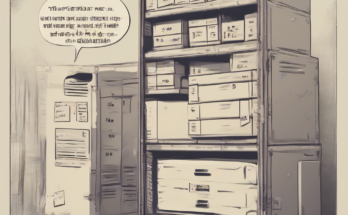Your Guide to Finding the Perfect Storage Unit in Fort Walton Beach, FL
Finding the right storage unit in Fort Walton Beach, Florida can feel overwhelming. With so many options available, understanding your needs and knowing where to look is crucial. This comprehensive guide will walk you through the process, helping you navigate the landscape of self-storage in FWB and find the ideal solution for your specific requirements.
Understanding Your Storage Needs
- What are you storing? The type of items you’re storing dictates the size and type of unit you need. Are you storing furniture, seasonal items, business inventory, or something else? This will significantly influence your decision.
- How much space do you need? Accurately estimating the space required is crucial. Many facilities offer various unit sizes, from small lockers to large drive-up units. Measure your belongings or create a detailed inventory to avoid underestimating.
- How long will you need the unit? Short-term rentals often come with higher costs per month, while long-term contracts may offer discounts. Consider your storage timeline to choose the most cost-effective option.
- What are your budget constraints? Storage unit costs vary depending on size, location, and amenities. Set a realistic budget and stick to it. Remember to factor in additional costs like insurance and administrative fees.
- What features are important to you? Consider features like climate control (for sensitive items), drive-up accessibility (for easy loading and unloading), security features (like surveillance cameras and gated access), and the overall cleanliness of the facility.
Finding Storage Units in Fort Walton Beach
Fort Walton Beach offers a variety of storage solutions. Your search can begin online, using search engines or dedicated storage unit listing websites. Many facilities also have their own websites, allowing you to browse available units, check prices, and even reserve online.
- Online Search Engines: Use search terms like “storage units Fort Walton Beach FL,” “self storage FWB,” or “storage near me” to find local facilities.
- Storage Unit Listing Websites: Websites specializing in self-storage listings provide comprehensive information on facilities, unit sizes, prices, and amenities. These sites often allow you to filter your search based on specific criteria.
- Local Directories: Check local business directories and community websites for listings of storage facilities in Fort Walton Beach.
- Word-of-Mouth: Ask friends, family, neighbors, or colleagues for recommendations on storage facilities they’ve used in the past.
Factors to Consider When Choosing a Facility
- Location and Accessibility: Choose a facility that’s conveniently located and easily accessible. Consider proximity to your home or business to minimize travel time.
- Security Features: Look for facilities with robust security measures, such as perimeter fencing, security cameras, gated access, and possibly on-site management.
- Cleanliness and Maintenance: A clean and well-maintained facility is essential. Inspect the facility yourself to ensure it’s in good condition and well-lit.
- Insurance Options: Many facilities offer insurance options to protect your belongings. Consider the coverage offered and its cost.
- Customer Service: The quality of customer service can make a significant difference. Read online reviews and check for customer testimonials to gauge the reputation of the facility’s management.
- Contract Terms and Conditions: Carefully review the lease agreement before signing to understand the terms, conditions, payment schedule, and any potential fees.
- Unit Size and Type: Choose a unit that’s appropriately sized for your belongings. Consider drive-up accessibility if you anticipate needing frequent access to your stored items.
- Climate Control: If you’re storing sensitive items susceptible to damage from temperature fluctuations, climate-controlled units are crucial.
- Packing and Moving Supplies: Some facilities offer packing supplies for sale, saving you a trip to a separate store. Check if this is a service offered.
Tips for a Smooth Storage Experience
- Inventory Your Belongings: Before renting a unit, create a detailed inventory of everything you plan to store. This will help you estimate the required space and protect against loss or damage.
- Protect Your Valuables: Securely pack and protect valuable items before storing them. Consider using protective covers, wrapping materials, and appropriate containers.
- Properly Pack Items: Use sturdy boxes and packing materials. Avoid overloading boxes and label them clearly.
- Utilize Vertical Space: Maximize space by stacking boxes efficiently and using shelf units within the unit.
- Regularly Inspect Your Belongings: Visit your storage unit periodically to check on your belongings and ensure everything is in order.
- Maintain Proper Ventilation: Ensure proper ventilation to prevent mold and mildew growth, especially if storing items in a non-climate-controlled unit.
- Inform Your Insurance Provider: Inform your homeowner’s or renter’s insurance provider about your stored belongings to ensure adequate coverage.
- Review Your Contract Regularly: Periodically review your lease agreement to ensure you understand the terms and conditions and to stay updated on any changes in policy.
- Plan Your Move: Plan your move to the storage facility carefully. Gather necessary supplies, arrange for transportation, and allocate sufficient time for loading and unloading.
Understanding the Costs Involved
The cost of a storage unit varies depending on several factors including location, size, amenities, and length of contract. Obtain quotes from multiple facilities to compare prices. Be sure to ask about any additional fees, such as administrative fees, late payment penalties, or early termination fees.
- Unit Size: Larger units naturally cost more than smaller ones.
- Location: Units in more convenient or desirable locations often command higher prices.
- Amenities: Climate-controlled units and those with enhanced security features typically cost more.
- Lease Term: Longer lease terms may offer discounts, while short-term rentals often have higher monthly rates.
- Insurance: The cost of insurance will vary depending on the level of coverage chosen.
Choosing the Right Storage Unit Size
Selecting the correct unit size is crucial to avoid wasting money on unnecessary space or finding yourself short on room. Consider the volume of your belongings and measure your items if possible.
- Small Units (Lockers): Ideal for storing a few boxes, small furniture items, or seasonal decorations.
- Medium Units: Suitable for storing the contents of a small apartment or a single-bedroom home’s belongings.
- Large Units: Can accommodate the contents of a larger home, multiple bedrooms’ worth of items, or business inventory.
- Drive-Up Units: Offer easy access for loading and unloading, ideal for larger items or frequent access.
Finding the Best Deals on Storage Units
Comparing prices from multiple facilities is essential. Look for special offers, promotions, or discounts that might be available. Be aware of hidden fees and read the fine print carefully before signing a contract.
- Compare Prices: Get quotes from several storage facilities to find the best deal.
- Look for Discounts: Inquire about discounts for long-term rentals, military personnel, or senior citizens.
- Read Reviews: Check online reviews to see what other customers have said about the facility’s pricing and customer service.
- Negotiate: Don’t hesitate to negotiate the price, especially if you’re committing to a long-term lease.


